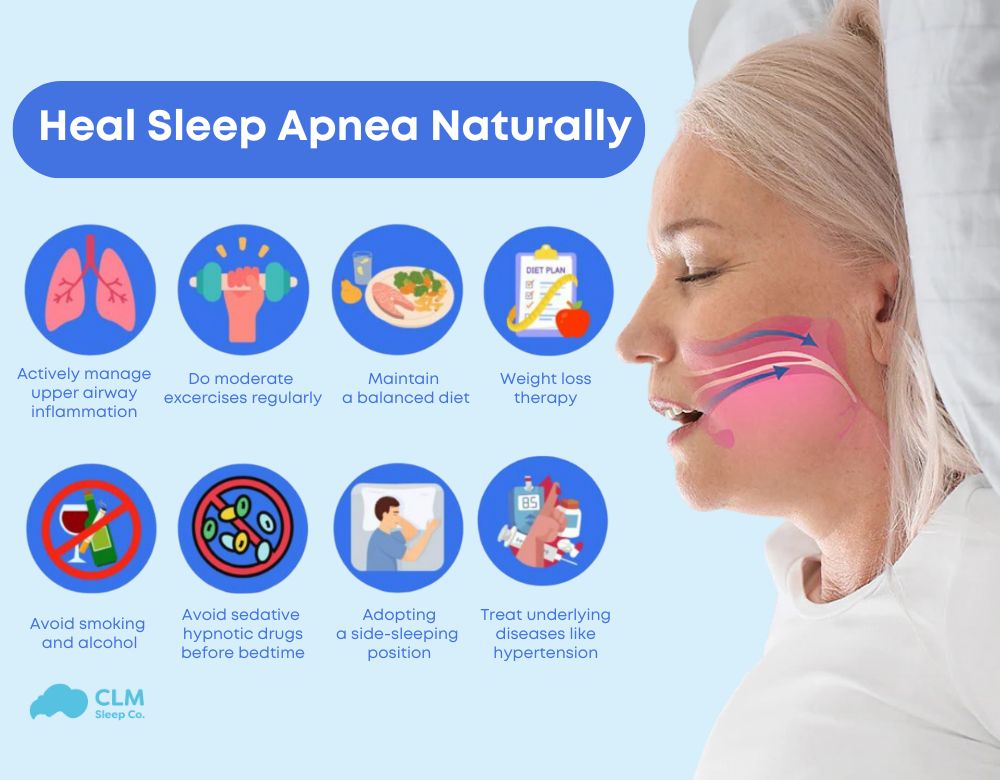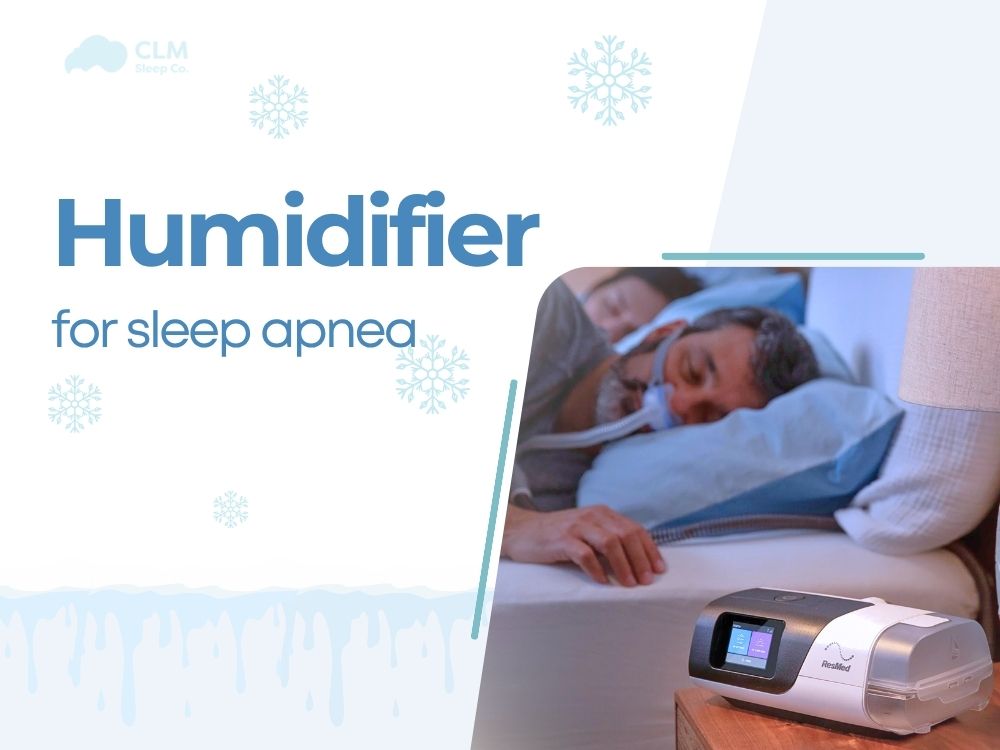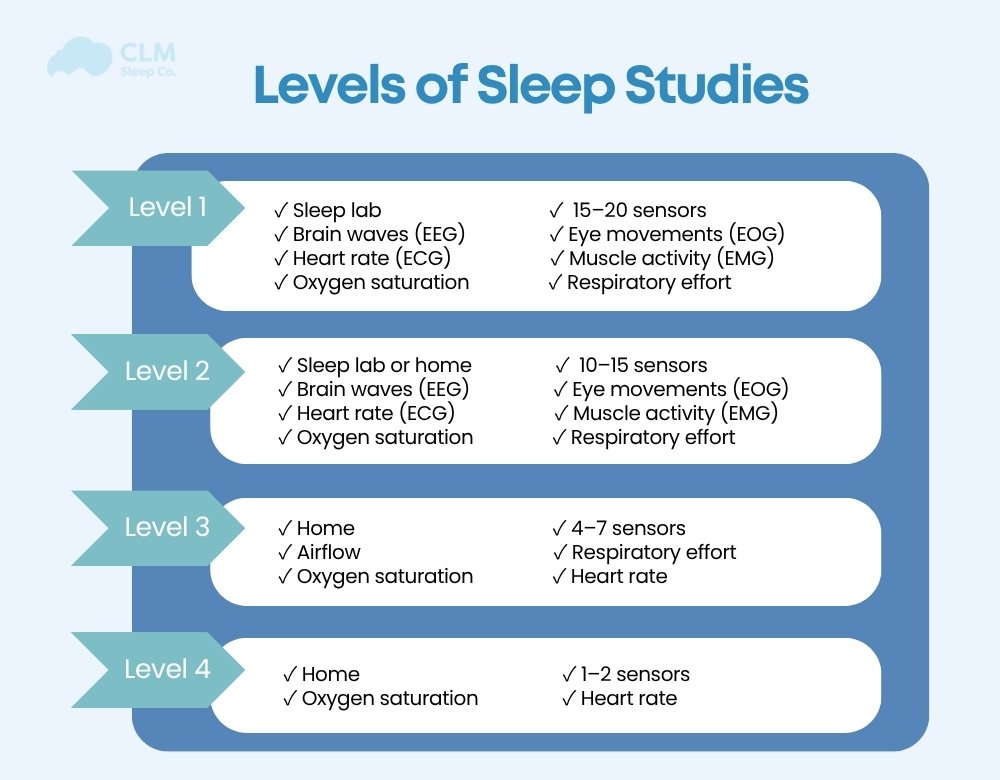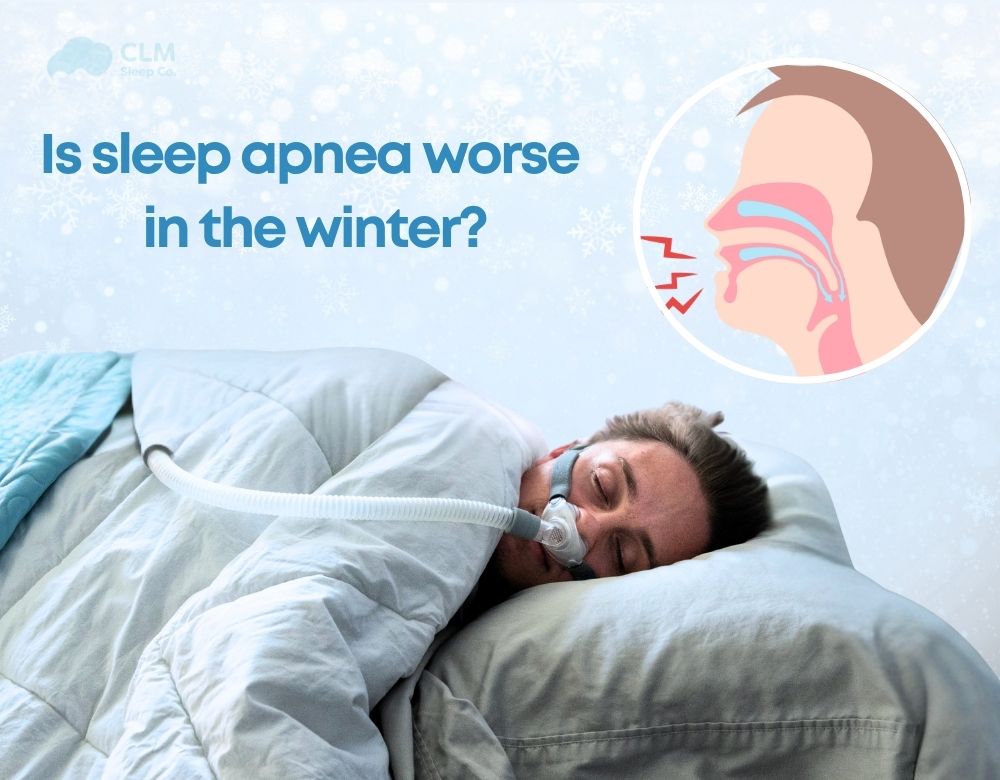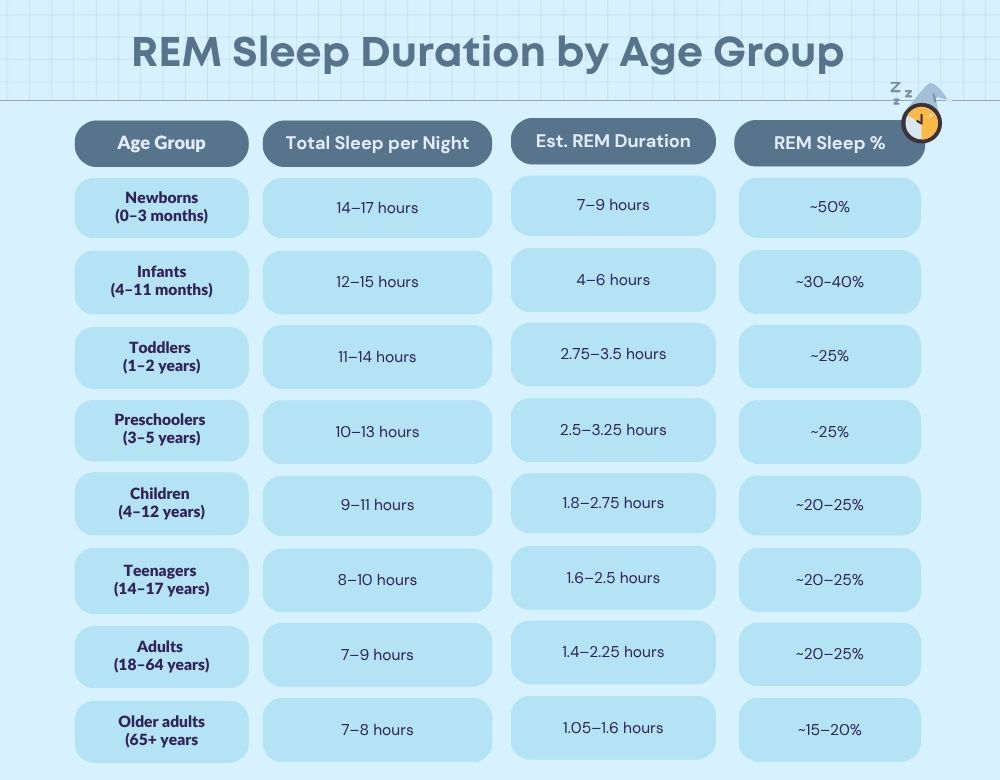Sleep apnea, which is the condition of a disequilibrium in breath during sleep, can be very unhealthy for you in a total effect on health and wellness. While, many times, medical treatments become a necessity, several home remedies can also bring in the management of the same quite effectively. This article of CLM Sleep would talk about obstructive sleep apnea, how to identify it from the comfort of your home, and most importantly how to heal sleep apnea naturally and improve the quality of your sleep.
Introduction to Sleep Apnea
Sleep apnea is such a disorder of sleep that the individual often ceases to breathe for short periods during sleep. The condition results in reduced oxygen supply to the body, and it is usually accompanied by gasping for breath by the individual, who will then wake briefly. Most people afflicted with such a condition are not aware that their sleep patterns are disturbed. Sometimes it might just appear to be ordinary snoring.
Left untreated, sleep apnea can lead to more severe conditions besides fatigue and feeling drowsy all the time, such as:
- Challenges in mental health
- Low immune response
- Cognitive deficits
- Increased probability of congestive cardiac failure
Management would typically involve any form of device for breathing assistance (CPAP machine) through medication or, in some cases, surgery. However, some lifestyle modifications and natural remedies for sleep apnea could enhance an individual’s total wellness and quality of sleep to a great extent.
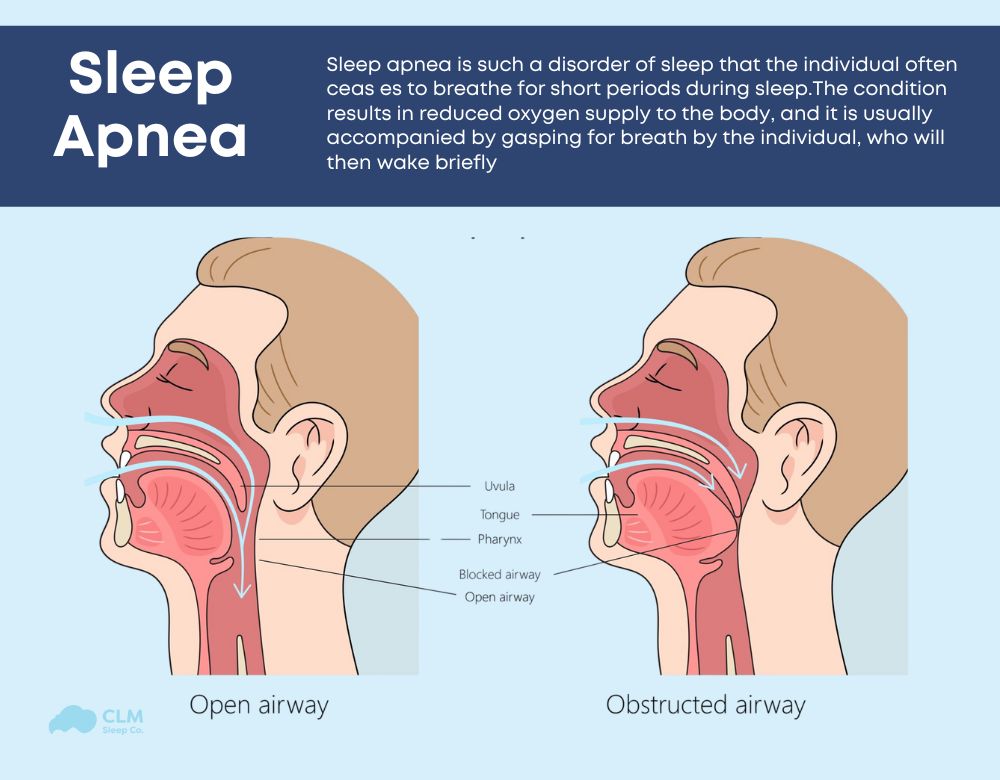
See more: Sleep Apnea Self-Care – Tips for Managing Your Condition
Understanding the Causes of Sleep Apnea
Several factors contribute to the development of sleep apnea, including health conditions, lifestyle choices, anatomical traits, and genetics:
- Health: Health: For instance, obesity, high blood pressure, and type 2 diabetes are considered major contributors to sleep apnea. The fat stored in the walls of the windpipe narrows it due to overweight people and therefore serves as a major cause of sleep apnea as it increases the likelihood of the interruption of breath during one’s sleep.
- Lifestyle factors: Unhealthy lifestyle habits including smoking, alcohol, and having less or no physical movement can increase sleep apnea occurrences. Smoking acts as an irritant to the airways and the throat muscles get so relaxed with alcohol; hence, breathing during sleep becomes a challenge.
- Anatomy: Anatomical structures such as having naturally narrow passage enlarged tonsils or deviated septum may predispose individuals to sleep apnea. These structural problems curtail the flow of air inspiring frequent breathing pauses during the night.
- Genetics: There is a significant genetic predisposition to sleep apnea. The tendency can be inherited through family history or acquired through other inherited characteristics such as having a recessed jaw or high chances of airway blockage.
Therefore, if the possible underlying issues are solved- be it through medical treatment, healing sleep apnea naturally by lifestyle changes, or specialized treatment for breath-related sleeping disorders – it would mean quite a big step in managing sleep apnea and working better to improve your quality of life.
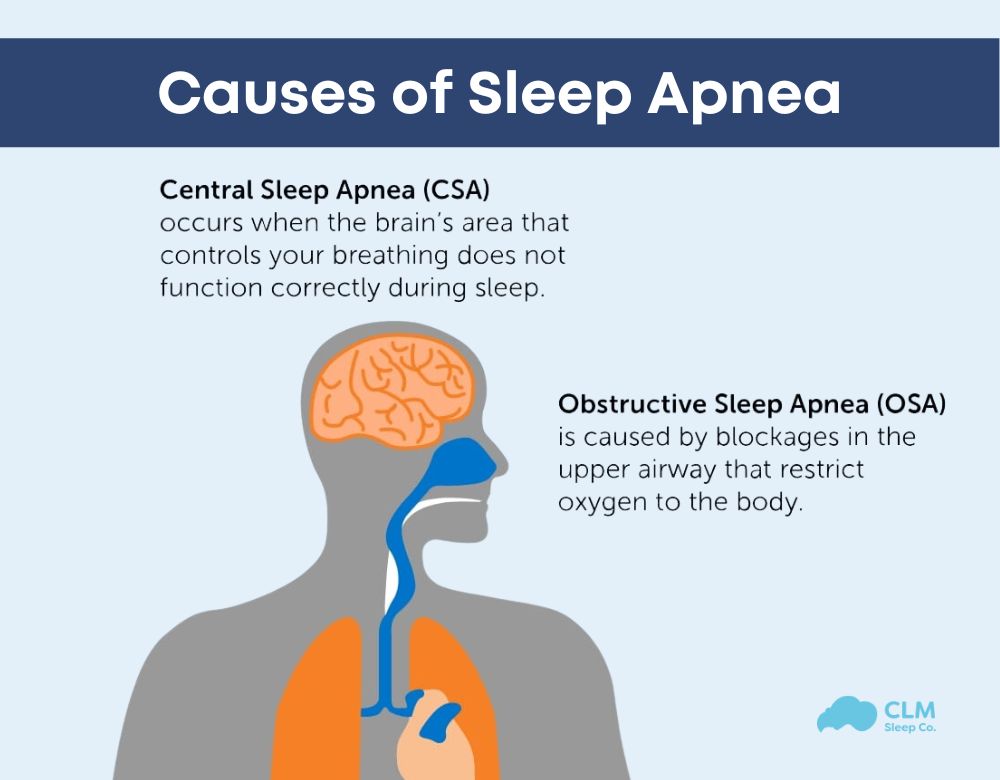
Natural Remedies to Heal Sleep Apnea
Conventional sleep apnea treatments often involve using a CPAP mask during sleep. While highly effective, many individuals find the mask cumbersome or uncomfortable. Fortunately, several home remedies and alternative approaches can help manage sleep apnea symptoms. Here are some strategies considered to heal sleep apnea naturally:
Breathing exercises
Practicing specific breathing techniques can help strengthen the muscles in your airway and promote better oxygen flow. Exercises like diaphragmatic breathing or playing wind instruments, such as the didgeridoo, have shown promise in reducing sleep apnea symptoms. These methods not only improve airflow but also encourage relaxation, which is essential for quality sleep.
Sleep posture adjustments
Switching your sleeping position to your side rather than your back might seem like a minor adjustment, but it can significantly alleviate sleep apnea symptoms. Research from 2006 revealed that more than half of obstructive sleep apnea cases were linked to sleep position.
Additional studies have shown that sleeping on your back often exacerbates symptoms, while some adults experience normalized breathing simply by adopting a side-sleeping position.
Lifestyle changes
Adopting a healthier lifestyle can make a noticeable difference in managing sleep apnea. Here are some key areas to focus on:
- Diet: Avoid heavy meals, caffeine, and alcohol before bed. Focus on a balanced diet rich in whole foods to support overall health.
- Exercise: Regular physical activity strengthens your respiratory system and can improve sleep quality. Activities like yoga or cardio exercises are particularly beneficial.
- Weight Loss: For individuals with obesity-related sleep apnea, losing even a small amount of weight can reduce symptoms by relieving pressure on the airway.
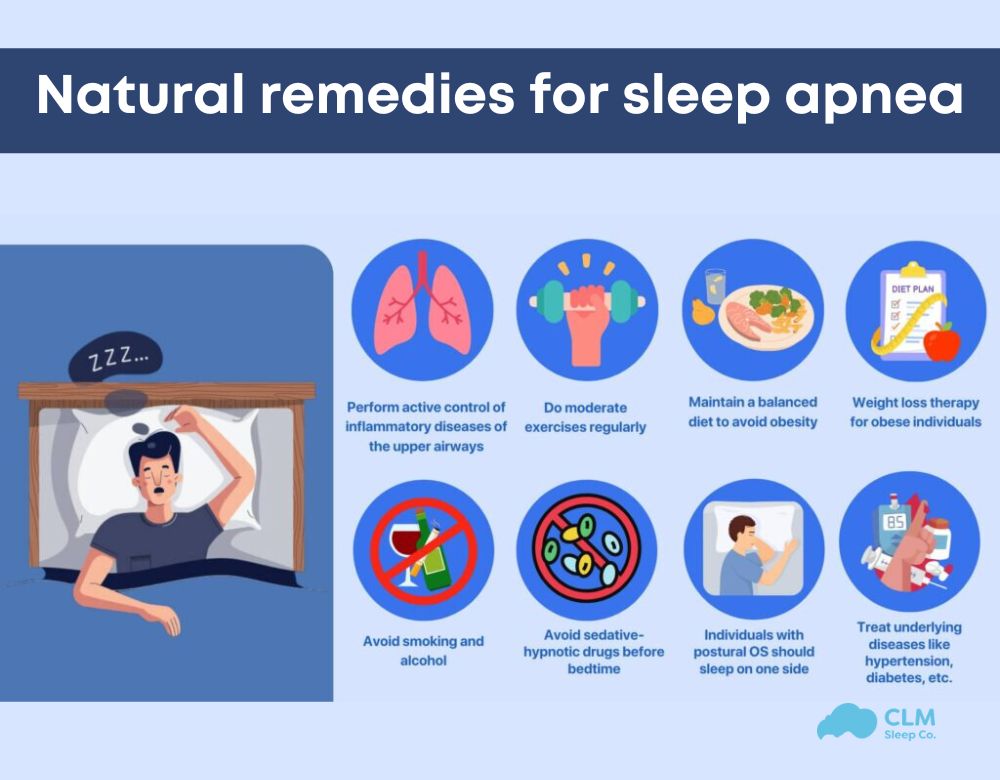
The Role of Diet in Managing Sleep Apnea
Diet plays a significant role in managing sleep apnea, as certain foods and eating habits can either improve or exacerbate symptoms. By making thoughtful dietary choices, you can reduce inflammation, maintain a healthy weight, and support better sleep quality. Here’s how diet impacts and how you can optimize to heal sleep apnea naturally:
– Weight Management: Excess weight around the neck increases sleep apnea risk. A diet rich in whole grains, lean proteins, fruits, and vegetables supports weight loss and reduces airway pressure.
– Reduce Inflammation: Antioxidant-rich foods like berries, leafy greens, nuts, and omega-3 sources such as fatty fish help lower airway inflammation, improving breathing.
– Foods to limit or avoid:
Certain dietary choices can worsen sleep apnea symptoms and impact sleep quality. Here are some foods to limit or avoid:
- High-Fat and Processed Foods: These contribute to weight gain and inflammation, which can aggravate sleep apnea.
- Alcohol: Consuming alcohol relaxes the throat muscles, potentially triggering or intensifying sleep apnea episodes. It also disrupts the sleep cycle, leading to poor sleep quality.
- Caffeine: Drinking caffeinated beverages too close to bedtime can interfere with falling asleep and disrupt the natural sleep cycle.
- Heavy Meals Before Bed: Eating large meals late in the evening can cause discomfort and disturb your sleep. Try to finish eating at least two hours before bedtime for better rest.
– Healthy Habits: Finish meals at least two hours before bed and stay hydrated while limiting fluids close to bedtime.
By focusing on a nutritious diet and avoiding trigger foods, you can better treat sleep apnea naturally and improve sleep quality.
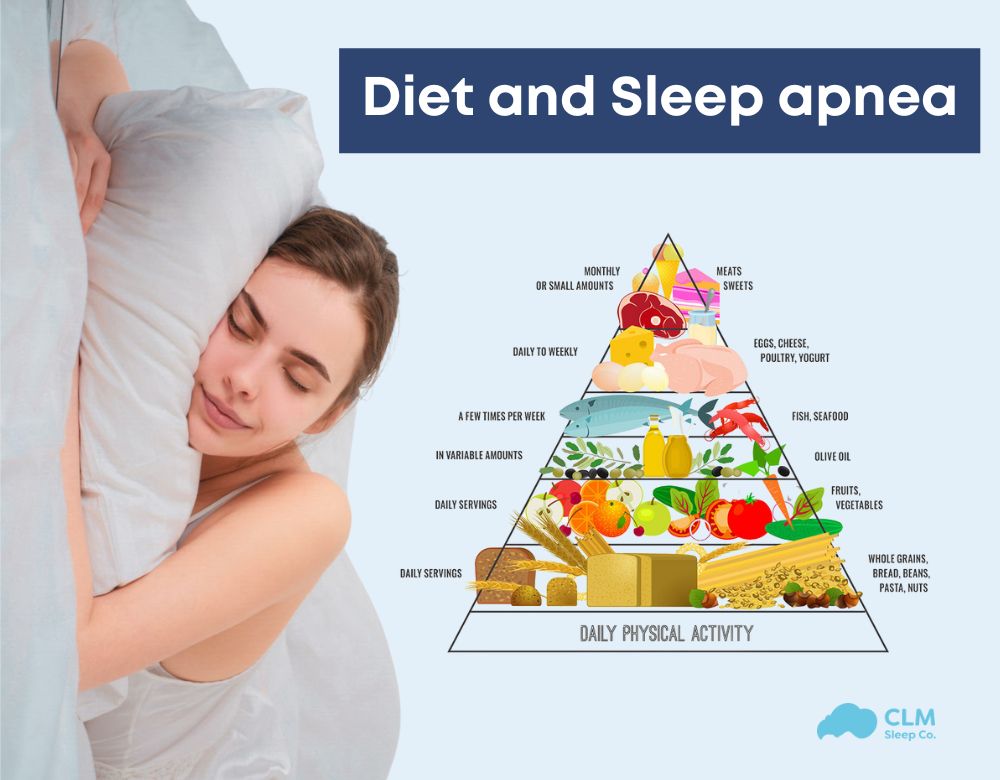
Sleep Hygiene Tips for Better Rest
Good sleep hygiene is essential for improving sleep quality and managing conditions like sleep apnea. By adopting healthy sleep habits, you can create an environment conducive to restful and uninterrupted sleep. Here are 12 tips to enhance your sleep hygiene:
- Keep a Consistent Sleep Schedule: Go to bed and wake up at the same time daily, even on weekends.
- Create a Relaxing Bedtime Routine: Stick to calming activities like reading or meditating before bed.
- Turn Off Electronic Devices: Power down screens at least an hour before sleep to reduce blue light exposure.
- Exercise Regularly: Stay active during the day, but avoid intense workouts close to bedtime.
- Limit Caffeine Intake: Avoid caffeine in the late afternoon and evening to prevent sleep disruption.
- Optimize Your Sleep Environment: Keep your room cool, dark, and quiet, with comfortable bedding.
- Use Your Bed Only for Sleep and Sex: Avoid activities like working or watching TV in bed.
- Go to Bed When You’re Tired: Bedhead only when you feel sleepy to avoid tossing and turning.
- Limit Napping: Keep naps short and earlier in the day, or avoid them altogether.
- Manage Stress Before Sleep: Practice relaxation techniques to calm your mind before bedtime.
- Avoid Large Meals Before Bed: Finish eating at least two hours before sleep to avoid discomfort.
- Control Light Exposure: Maximize natural light during the day and dim lights in the evening to support your sleep-wake cycle.
Conclusion of the article
Managing sleep apnea naturally can promote a healthier lifestyle. Simple changes like adjusting your sleep posture, practicing breathing exercises, eating a nutritious diet, and adopting mindful habits can reduce symptoms, heal sleep apnea naturally, and improve your quality of life. While not a substitute for medical treatment in severe cases, these methods are excellent complements. Prioritize your sleep health, and with consistency, you can breathe easier, sleep better, and wake up refreshed.
Discover more about managing sleep disorders and their effects on your health by visiting our website. At CLM Sleep, we provide comprehensive diagnostic and treatment services for sleep apnea to help you regain restful sleep and improve your overall well-being.
Explore a wide range of sleep improvement devices at our online store, Cpapdiscount, where you’ll find trusted brands like ResMed, F&P, Philips, and more. For expert resources and high-quality sleep apnea treatment options, check out CPAP Adelaide and shop conveniently at Cpapdiscount.
